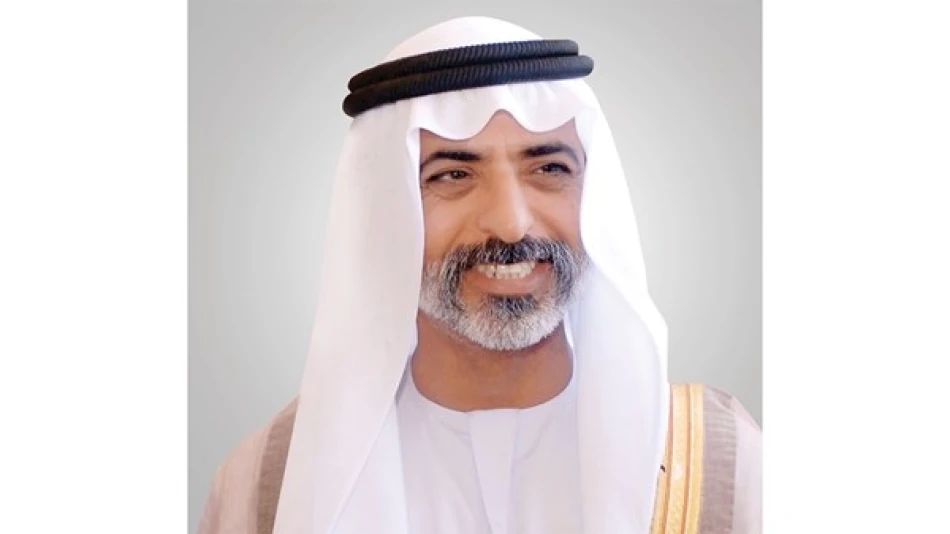
UAE Minister Attends Moroccan Embassy's Gala Celebrating National Day
UAE-Morocco Diplomatic Ties Reach New Heights as Leaders Celebrate King's Silver Jubilee
The UAE and Morocco showcased their deepening strategic partnership during a high-profile diplomatic reception in Abu Dhabi, marking 26 years since King Mohammed VI ascended to the Moroccan throne. The event highlighted how both nations are leveraging their historical ties to build stronger economic and political alliances in an increasingly multipolar Middle East.
High-Level Diplomatic Engagement Signals Strategic Priorities
Sheikh Nahyan bin Mubarak Al Nahyan, UAE Minister of Tolerance and Coexistence, attended the reception hosted by Moroccan Ambassador Ahmed Al-Tazi at the Bab Al Qasr Hotel in Abu Dhabi. The guest list included Ali Abdullah Al-Ahmad, Assistant Undersecretary for Defense Policies and Communication at the Ministry of Defense, senior officials, and members of the Arab and foreign diplomatic corps accredited to the UAE.
The presence of high-ranking defense and tolerance ministry officials underscores the UAE's commitment to strengthening ties across multiple sectors, from security cooperation to cultural exchange. This approach mirrors the UAE's broader diplomatic strategy of building comprehensive partnerships rather than single-issue alliances.
Building on Historical Foundations for Modern Challenges
Ambassador Al-Tazi emphasized the "exemplary brotherly relations" between the two nations, tracing their roots back to the era of the late Sheikh Zayed bin Sultan Al Nahyan and King Hassan II. This historical foundation provides both countries with a stable platform for addressing contemporary regional challenges.
Economic Implications for Regional Trade
The strengthening UAE-Morocco relationship carries significant economic weight. Morocco serves as a gateway to African markets, while the UAE offers access to Asian trade routes and advanced financial services. For investors and businesses, this partnership creates opportunities in sectors ranging from renewable energy to logistics and fintech.
The timing is particularly strategic as both nations seek to diversify their economies. Morocco's focus on becoming a manufacturing hub for Europe and Africa complements the UAE's ambitions to become a global business center beyond oil revenues.
Regional Geopolitical Context
This diplomatic engagement occurs against the backdrop of shifting Middle Eastern and North African dynamics. Both countries have positioned themselves as moderate voices in regional affairs, making their partnership valuable for stability initiatives. Unlike some regional relationships that focus primarily on security concerns, the UAE-Morocco partnership emphasizes economic cooperation and cultural exchange.
The involvement of Morocco's diaspora community in the UAE, as evidenced by their significant presence at the reception, demonstrates the people-to-people connections that strengthen official diplomatic ties. This grassroots foundation often proves more durable than purely government-to-government relationships.
Strategic Outlook for Bilateral Relations
The celebration of King Mohammed VI's 26-year reign provides both nations an opportunity to assess their partnership's evolution and future trajectory. With Morocco's growing influence in Africa and the UAE's expanding global reach, their collaboration could serve as a model for South-South cooperation that doesn't rely on traditional Western or Eastern power centers.
For regional observers, the UAE-Morocco relationship represents a pragmatic approach to diplomacy that prioritizes economic development and cultural understanding over ideological alignment. This model may become increasingly relevant as Middle Eastern and African nations seek partnerships that support their development goals while maintaining strategic autonomy.
Most Viewed News

 Layla Al Mansoori
Layla Al Mansoori






